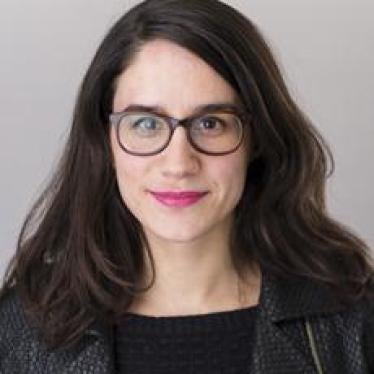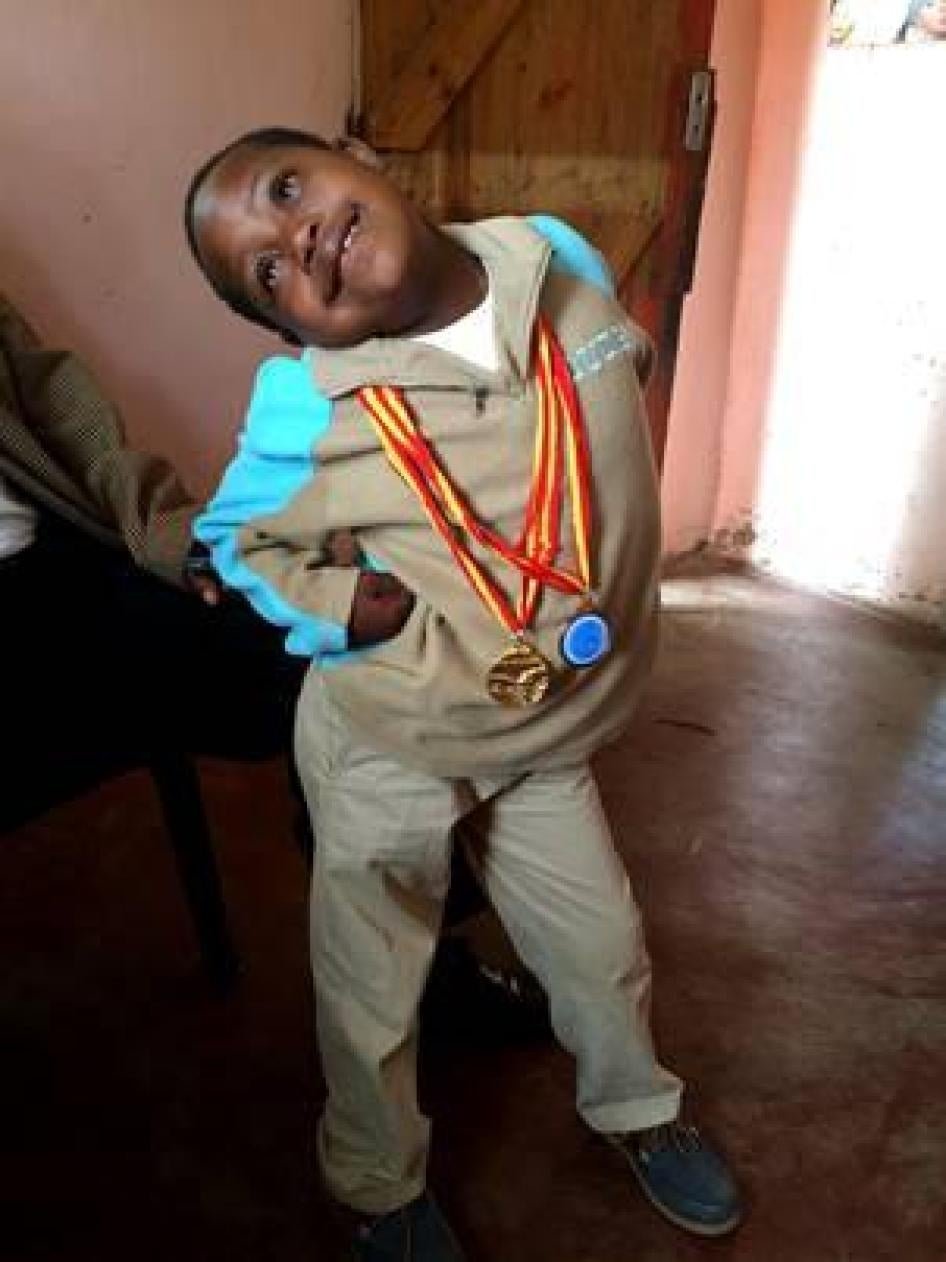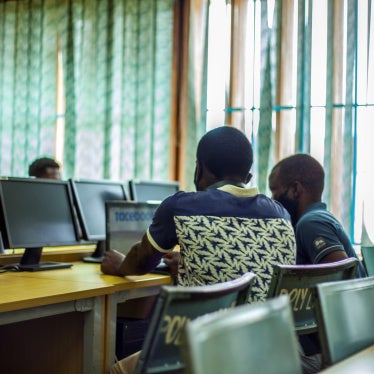By Nafisa Baboo and Elin Martinez
Think back to the last time you saw a child with a disability making their way to school. If you are a parent, have you seen any children with disabilities at your child’s school or daycare?
Chances are you didn’t see many. This is why.
“My boy did go to the mainstream school in the township, but one week a few officials from the Department of Basic Education visited the school. The social worker said my son should go to a special school. Everything changed after that. The principal said he could stay in the school until I could find him a special school, but on the condition that he would not go to school the days the social worker visited. Sometimes he would be at home for a week. Once, unexpectedly, a teacher took him back to our house because the social worker visited by surprise. After that, I took him out of the school. It wasn’t fair on him.”
This 8-year-old boy with Down Syndrome has been out of school for nearly two years and finally was offered a place where he will get limited training. But he has a right to go to a mainstream school.
Just more than 100 000 children with disabilities are enrolled in ordinary schools in South Africa; nearly 120 000 are in special schools. The government’s latest estimates are that more than half a million children are home or in daycare centres waiting, often for years, for a school.
South Africa has strong constitutional protection of the right to education and the right not to be discriminated against. It also has policies and laws to protect every child’s fundamental right to basic education. Indeed, education is an ‘apex’ priority for the government. Yet many children with disabilities are left behind.
The government designed a good policy fourteen years ago to ensure the majority of children with disabilities could access an ordinary school, so that they could learn alongside their peers with adequate support to overcome any learning barriers.
But a report by Human Rights Watch, issued last month, shows multiple ways in which the government systematically leaves children behind.
First, many mainstream schools send out a clear message that children with disabilities are not welcome and if they do admit a disabled child, extra fees are required.
Second, parents have to navigate a complex system that is not set up to help them.
Third, politicians, government officials and many educators segregate children with disabilities, citing their special needs – as if all children didn’t have any particular needs. Children with disabilities are often referred to special schools without a careful assessment of whether this is in their best interests.
Also, too often, these schools don’t have the actual resources needed, have poorly qualified teachers and don’t offer the high level of support they claim to. Many children in these schools are taught far below their intellectual ability and left without the necessary skills to live an independent life.
Subjecting children with disabilities to further segregation will not give them a chance to progress or be included in society on an equal basis. How are other children going to learn about disabilities and understand that children with disabilities are in fact similar to them? How can potential employers understand people with disabilities if they have not interacted with them?
Further, a disproportionately high amount of resources are invested in building special schools. Retrofitting existing mainstream schools , placing teachers with adequate skills, and ensuring that new schools are fully accessible would cost much less.
The Human Rights Watch report aims to bring attention and visibility to the plight of the thousands of “invisible” children with disabilities who are being treated as second-class citizens. The report highlights several recommendations to rectify the situation. In addition to getting its data on children with disabilities and enrollment in order, the government should ensure all schools are legally obliged to include children with disabilities.
The pace of progress and accountability is unacceptable for a country that boasts the most progressive constitution on Earth. The government needs to step up action and honour its obligations of providing inclusive education as set out in the UN Convention on the Rights of People with Disabilities.
If the government does not spur into full action, you will probably not see many more children with disabilities at school grounds near you and we will remain a long way from being the inclusive society that Madiba envisaged for South Africa.
Nafisa Baboo, a South African national, is senior adviser on inclusive education at Light for the World International and a Board member of the Global Campaign for Education.










